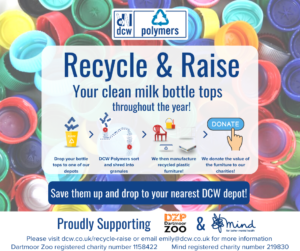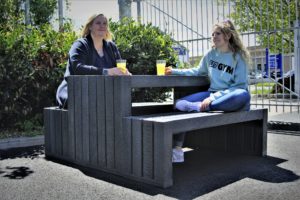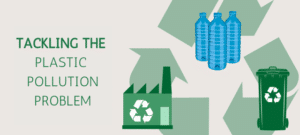The importance and significance of climate change needs no introduction. For years now, scientists have been warning us that the amount of greenhouse gases released into the atmosphere is having an adverse effect on the earth’s climate. This problem is worldwide and needs to be addressed immediately. One main answer to the problem of global warming could be recycling, as this puts a stop to disposing of materials in landfills which releases toxins and greenhouse gases. Instead, recycling allows us to use existing materials and transform them into an entirely different product.
One way in which plastics can be recycled is by creating recycled plastic furniture. At DCW Polymers, we hold strong values when it comes to creating new products from recycled materials. That’s why we’re a company that are proud to supply recycled plastic furniture to our customers.
So what exactly are the benefits of using recycled plastic outdoor furniture and how can it benefit you?
Benefits of Recycled Plastic Furniture
In view of the fact that recycled plastic furniture is a recent phenomenon, this means that you might not be aware of the countless benefits that it can offer. Not only is it good for our planet, but it can also offer so much more! Here are just some of the benefits that it affords:
Environmentally-Friendly
This might be the most obvious benefit, but it’s important to not underestimate just how beneficial recycling can be to our planet. By using materials that already exist in our environment and using them for different purposes completely minimises the amount of energy we use, whilst reducing the amount of landfill waste we have. Landfills are one of the main contributors to the release of toxins, and therefore it’s essential that we keep on top of this. By doing so, having recycled plastic outdoor furniture can go a long way to benefit our natural environment.
At DCW Polymers, all of our recycled plastic furniture uses plastic waste from the South West. We know how important it is to have furniture that contributes positively to the environment but doesn’t compromise on comfort or appearance. That’s why we provide furniture that can both enhance the appearance of your garden or public space, whilst providing maximum comfort.
Rot-Proof
One of the main benefits of plastic furniture is that it is rot-free, meaning that it can out-live any wooden alternative. If you invest in recycled plastic furniture, then you know you are receiving a piece of furniture that will stand the test of time. However, if you were to have wooden furniture then you would have to worry about it rotting. The main issue with plastic left in landfills is the fact that it doesn’t degrade. Why not turn this negative into a positive by recycling the plastic so you have recycled garden furniture?
Weather Resistant
The reason why recycled plastic furniture isn’t susceptible to rots can be placed down to the fact that it is weather resistant. Wood furniture can be damaged if there are constant temperature fluctuations. If wood furniture isn’t maintained properly, then there is the possibility for the water, air and heat to force the wood to rot. When you consider the unpredictability of British weather, you want garden furniture that you can depend on throughout the year. Plastic recycled garden furniture could be the perfect solution, as it is resistant to all types of weather conditions.
Insect Resistant
As well as being resistant to weather conditions, recycled furniture is also impervious to insects. With wood, infestations can occur if beetles or larvae enter. Considering that wood can crack as a result of the changing weather conditions, this offers opportunities for insects to enter. Once these insects enter, further damage can be caused to your furniture. The possibility of this happening with plastic recycled furniture is somewhat impossible because the weather doesn’t impact plastic. As a result, bugs and insects won’t be enticed to enter.
Low Maintenance
Having plastic furniture is somewhat maintenance-free, all you have to do is set it up how you like, sit back and enjoy! As mentioned earlier, plastic furniture is rot-free so you don’t have to spend time and effort trying to continuously breathe life back into your furniture. Plastic furniture can also be known for its resilience, battling off stains and losses in colour. Not only that, but it’s much easier to clean plastic furniture when compared to other materials. Not only can plastic furniture fit perfectly in gardens at home but it’s also perfect for those who work in the hospitality industry, where spilt food and drinks are aplenty.
Lightweight
Comparing this type of furniture to others, you might notice just how lightweight it is. Other materials such as wood and or metal are much heavier alternatives for furniture, making it much more difficult to transport. If you’re trying to transport the furniture into your garden, then plastic furniture won’t cause you too much stress.
Safe for Children
As aforementioned, plastic furniture is easy to clean and maintain. Considering that children aren’t exactly known for holding things still with their butterfingers, you want to have furniture that is easy to clean. Furthermore, having plastic furniture completely removes the possibility of splinters, so children are safe at all times. In this instance, plastic furniture such as benches would fit perfectly into school playgrounds.
Types of Plastic Furniture
Whilst the above has just listed a few of the benefits that recycled plastic can offer, it’s important to not forget how versatile plastic can be and the different types of furniture you can make from it. Take a look at the different types of plastic furniture you can make through recycling:
Recycled Plastic Bench
Benches are just one piece of furniture that can be created through plastic recycling. Considering that plastic furniture is lightweight, this means that it is easier to move around. However, although it is lightweight this doesn’t mean it doesn’t hold back when it comes to strength and durability. This piece of furniture could fit perfectly in a garden, balcony or playground.
Recycled Plastic Chair
Similar to the bench, a recycled plastic chair would fit seamlessly into a garden, balcony or break area. At DCW Polymers, all of our recycled garden furniture products are made straight from plastic collected in the South West. By doing so, you know that you’ll be sitting on plastic that would otherwise just be sat in a landfill, so having this piece of furniture shows your commitment to the environment!
Coffee Table
Who doesn’t love a coffee table? What makes this piece of furniture unique is the fact that you can actually leave it outside because plastic furniture requires virtually no maintenance. Whereas with other furniture you would have to keep a keen eye on it to see whether there are any cracks or deformities.
Ottery Bench
This recycled plastic outdoor furniture is perfect for socialising with friends. Having a corner bench can make your area seem more inviting and improve the aesthetics of your garden. Not only that, but corner benches can offer maximum comfortability. These types of benches would best be suited in both public and home settings.
DCW Polymers, Supplying Recycled Garden Furniture You Can Rely On
If you are convinced that recycled plastic outdoor furniture would be a welcomed addition to your space, then look no further than DCW Polymers. We are a company that create bespoke furniture pieces, ensuring that you receive furniture that is perfectly tailored to you and your needs. Having recycled garden furniture can not only benefit you, but it’s also a huge positive towards caring for the environment. Supplying a range of recycled furniture including benches and tables, we’re proud to supply products that are durable, weather-resistant and low maintenance. Not only that, but we can also provide recycled plastic fencing and decking too! To find out more about the products and services that we offer, then enquire today or give us a call on 01392 535 353.





